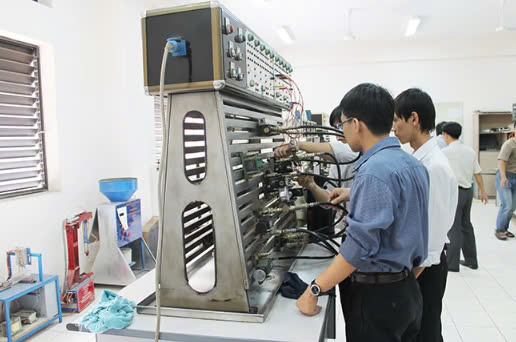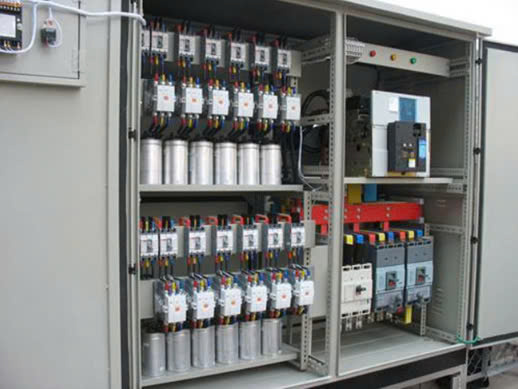
The Industrial Electricity sector ensures the stability and development of electrical transmission systems serving industrial production, agriculture, commerce, and residential needs. Due to the high demand for technical work, many educational institutions offer training programs at the intermediate and college levels, equipping students with the knowledge and skills required to meet technical labor demands.
Unlike industrial electrical engineers responsible for designing systems and ensuring the stability of power transmission—tasks requiring significant expertise and experience—industrial electrical technicians (trained at intermediate and college levels) handle technical execution. This includes installing, wiring, and operating electrical systems based on technical drawings and established guidelines.
Learning Industrial Electricity involves installing, repairing, and maintaining power supply systems, distribution cabinets, lighting networks, electrical machinery, and equipment in industrial plants. Technicians work in diverse environments, including indoors, outdoors, mines, and underground areas, ensuring adherence to labor safety standards.

Graduates trained in industrial electricity at the college level are equipped to handle:
- Operation and maintenance of power distribution systems in production companies using electrical machinery, as well as operation of electrical machinery, factory power networks, and workshop power systems.
- Operation and maintenance of industrial electrical systems in industrial parks and residential areas, installation of lighting systems (both residential and industrial), lightning protection, grounding systems, and electrical safety/security systems.
- Calculation, repair, operation, and inspection of electrical devices, AC/DC motors, and industrial and residential transformers.
The broad application of industrial electricity across the country offers diverse job opportunities, including:
- Local electrical utilities: Working in positions at local power companies.
- Maintenance technicians: Maintaining electrical systems in various production plants.
- Electrical manufacturing: Joining companies producing accessories for the electrical industry.
- Transmission and distribution teams: Working in line maintenance and repair teams or at power transmission and distribution stations as operators or maintenance personnel.
- Electrical construction companies: Working in companies specializing in building electrical infrastructures.
- Factory and workshop maintenance teams: Handling electrical equipment maintenance in factories and workshops.
Industrial electricity offers a stable career path with opportunities to contribute to the nation's industrialization and modernization.